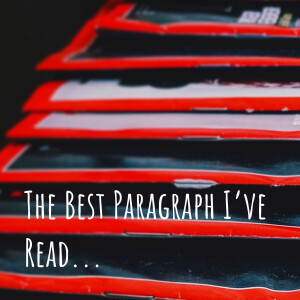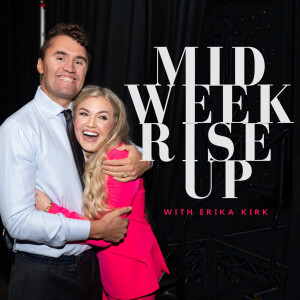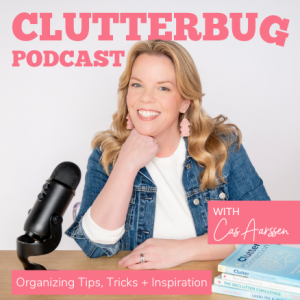

The Best Paragraph I've Read...
https://anchor.fm/s/1eb783c4/podcast/rssEpisode List

What's a Genius? Specialist or Well Rounded Skills? Can Athletes, Ballerinas, and Toilet Scrubbers Be Geniuses? Should We Excuse Geniuses for Being Jerks & Aloof? Were Jobs, Darwin, Leonardo Geniuses?
The Best Paragraph I've Read:"Let’s say there’s another pandemic. This time, a lethal disease spreads through contact with other people’s fecal matter. Precision toilet cleaning becomes a matter of life and death. In the wake of this pandemic, an aptitude test—callit the T.I.Q.—is developed to measure one’s ability to rotate brushes three-dimensionally inside holes. Kids who score highly are trained for the Toilet-Cleaning Olympiad, meant to keep the citizenry battle-ready and internationally competitive. Eventually, the world crowns a toilet-cleaningchampion—not surprisingly, someone with an off-the-charts T.I.Q. This person is the very best at a skill that is crucial for the survival of humanity. Are they a genius?"This paragraph comes from the New Yorker. The article is titled: "So You Want to Be A Genius." The article is written by S.C. Cornell. You can read the full article here:https://www.newyorker.com/magazine/2025/06/23/the-genius-myth-helen-lewis-book-reviewZac & Don discuss what genius is. Can they be recognized in society? They wonder if a genius is a specialist or have multiple skills. Can genius be taught to non geniuses?

Is It Possible To ONLY buy Made in America Products? Should You Buy If USA Products Are More Expensive But Last Longer? Should We Be Satisfied if the Product is only Designed in America?
The Best Paragraph I've Read:"In a Reddit forum for people interested in buying American-made products, a commenter asked: “Is a completely made in USA life possible?” One person responded that it would require living like Ted Kaczynski, the infamous recluse known as the Unabomber who lived a primitive lifestyle in a remote cabin."This paragraph comes from the Wall Street Journal. The article is titled: "Buying 100% Made in America Is Really, Really Hard. These People Are Trying." The author is Natasha Khan & Rachel Louise Ensign. You can read the full article here.Zac & Don discuss buying America. They discuss whether it is possible to only buy American Made products. They also discuss whether having a product made in America or designed in America is better.

Chickens, Horses, & Wiener Dogs! Fried Chicken Sandwiches > Burgers? A Jockey Can Hit Kentucky Derby Winning Horse 6 But Not 8 Times? People Are Surprised A Wiener Dog Survived Australia Alone?
The Best Paragraph I've Read:The Washington Post declared 2019 the Year of the Chicken Sandwich, which the paper translated into Latin—anno pulli—presumably so time travelers from the past could understand what was going on here. As a society, we had reached peak fried-chicken sandwich. LOL. Not even close. If, six years ago, the fried-chicken sandwich was a noveltyworth standing in line for, today it is a fact of eating in America. From 2019 to 2024, fried-chicken-sandwich consumption increased 19 percent at American restaurants, while burger consumption dropped 3 percent, according to industry analysis firm Circana. Over that same period, some 2,800 fast-food and fast-casual spots devoted to chicken cropped up across the country—and about1,200 burger joints disappeared.This paragraph comes from The Atlantic. The article is titled: "The Golden Age of the Friend-Chicken Sandwich." The author is Ellen Cushing. You can read the full article here:https://www.theatlantic.com/magazine/archive/2025/06/fried-chicken-sandwich-food-culture/682618/ Zac & Don discuss America's shift towards chicken sandwiches and away from burgers. They wonder if there is enough demand to support all the new restaurants. They wonder if there will be a new protein that Americans clamor for after chicken. Zac & Don also discuss the following topics: The Jockey who hit his horse too many times The wiener dog who survived in Australia alone.

The Sport of Track is Boring to Watch! Could Dual Meets Make the Sport More Interesting? Does the Scoring System Need to Be Simplified? Could NCAA Scholarship Changes & TV Demands Reformat the Sport?
The Best Paragraph I've Read:"College track and field once was a major spectator sport. Meets at Hayward Field were events. In 1970, Steve Prefontaine’s freshman year at Oregon, he competed in Pac-8 dual meets against Washington, Cal, UCLA, Washington State and Oregon State. Eugene Register-Guard printed pre-meet form charts that fans brought with them as they filled the stadium.Dual meets engaged people who knew little about theintricacies of the sport, and were more interested in who won than how many runners cracked 13 minutes, 50 seconds in the 5,000 meters. People inside Hayward in May 1972 still talk about the 1,500-meter battle between Prefontaineand Oregon State Olympian Hailu Ebba in the Oregon-OSU dual. The winning time? Who knows? Who cares? The story was about what would prevail, Pre’s strength or Ebba’s speed. Pre won as a packed stadium roared. Flash forward 50 years, all of that is gone. Dual meets have been largely pitched into history’s scrap heap. Star athletes going head-to-head in the 5,000 with the outcome of the meet hanging in the balance have been replaced by daylong invitational meets with no team scoring. Regular season college meets take place before mostly empty seats, even at the beautiful, 12,500-seat Hayward Field. “Track and field has moved away from being any kind of team sport whatsoever,” Lananna says. “Our competitions are dreadful. They’re long, drawn out, fragmented, and the modern audience can’t relate to whateverit is we’re doing.” On any given spring weekend, a college track team might send its throwers to a throws-specific meet in one city, its distance runners to a distance carnival in another city, and its sprinters and hurdlers somewhere else. The regular season goal has become to find places wherecollege athletes can record times or marks that qualify them for postseason competition. Winning an event isn’t as important as a fast time or a long triple jump or throw. Spectators aren’t part of the equation."This paragraph comes from an article in oregonlive.com. The article is titled: "Is the future of college track & field, including Oregon, in jeopardy? If we don't act now, we'll never save it." The author is Ken Goe. You can read the full article here: Zac & Don discuss the sport of track. They debate whether track should bring back and feature dual meets. They also discuss whether track needs to change its scoring system and find a way to make its product into a more compelling TV program.

Does Trying Still Matter When A.I. Can Already Do It? Do Humans Still Need to Work Through the Process of Learning Feedback Loops? Can There Ever Be Too Much A.I. Use? What Should 3rd Graders Do?
The Best Paragraph I've Read:We’re so used to trying things for ourselves that it seems bizarre to imagine us ever stopping. And yet, more and more, it’s becoming clear that artificial intelligence can relieve us of the burden of trying and trying again. A.I.systems make it trivially easy to take an existing thing and ask for a new iteration. The technology is still developing, and yet already an A.I. can give you a custom recipe based on a photo of what’s in your fridge. Songwriting A.I.s can generate version after version of a new tune; image-creating A.I.s can tweak an image endlessly. Is the automated exploration of alternatives a good substitute for the organic equivalent? Is this kind of variation-creation the same thing as human creativity? These are important questions to askbecause, as A.I. grows more powerful, we will be tempted more and more to give up in advance and let it figure things out for us.This paragraph comes from an essay in the New Yorker. The essay it titled: "Why Even Try if You Have A.I.?" The author is Joshua Rothman. You can read the full essay here: Zac & Don discuss whether one should try without AI or if one should just use AI when trying to solve problems or complete tasks. They wonder how younger learners will be impacted if they never work through feedback loops.
You may also like
Create Your Podcast In Minutes
- Full-featured podcast site
- Unlimited storage and bandwidth
- Comprehensive podcast stats
- Distribute to Apple Podcasts, Spotify, and more
- Make money with your podcast












